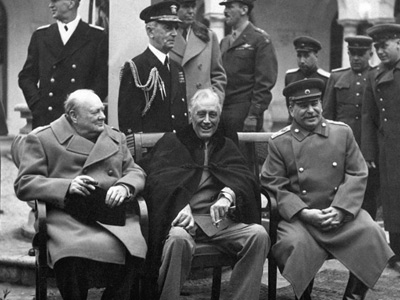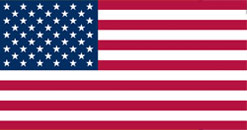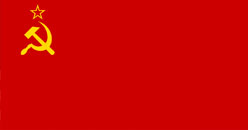Cold War (1947–1991)
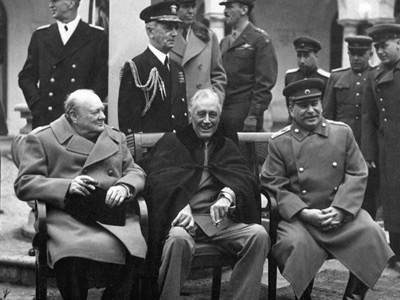
End of World War II (1945–1947)
Wartime conferences regarding post-war Europe
The Allies disagreed about how the European map should look, and how borders would be drawn, following the war. Each side held dissimilar ideas regarding the establishment and maintenance of post-war security. Some scholars contend that all the Western Allies desired a security system in which democratic governments were established as widely as possible, permitting countries to peacefully resolve differences through international organizations. Others note that the Atlantic powers were divided in their vision of the new post-war world. Roosevelt's goals – military victory in both Europe and Asia, the achievement of global American economic supremacy over the British Empire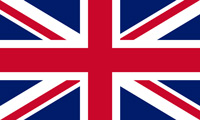 The British Empire, was composed of the dominions, colonies, protectorates, mandates, and other territories ruled or administered by the United Kingdom and its predecessor states. At its height it was the largest empire in history and, for over a century, was the foremost global power. By the start of the 20th century, Germany and the United States had begun to challenge Britain's economic lead. , and the creation of a world peace organization – were more global than Churchill's, which were mainly centered on securing control over the Mediterranean, ensuring the survival of the British Empire, and the independence of Central and Eastern European countries as a buffer between the Soviets and the United Kingdom.
The British Empire, was composed of the dominions, colonies, protectorates, mandates, and other territories ruled or administered by the United Kingdom and its predecessor states. At its height it was the largest empire in history and, for over a century, was the foremost global power. By the start of the 20th century, Germany and the United States had begun to challenge Britain's economic lead. , and the creation of a world peace organization – were more global than Churchill's, which were mainly centered on securing control over the Mediterranean, ensuring the survival of the British Empire, and the independence of Central and Eastern European countries as a buffer between the Soviets and the United Kingdom.
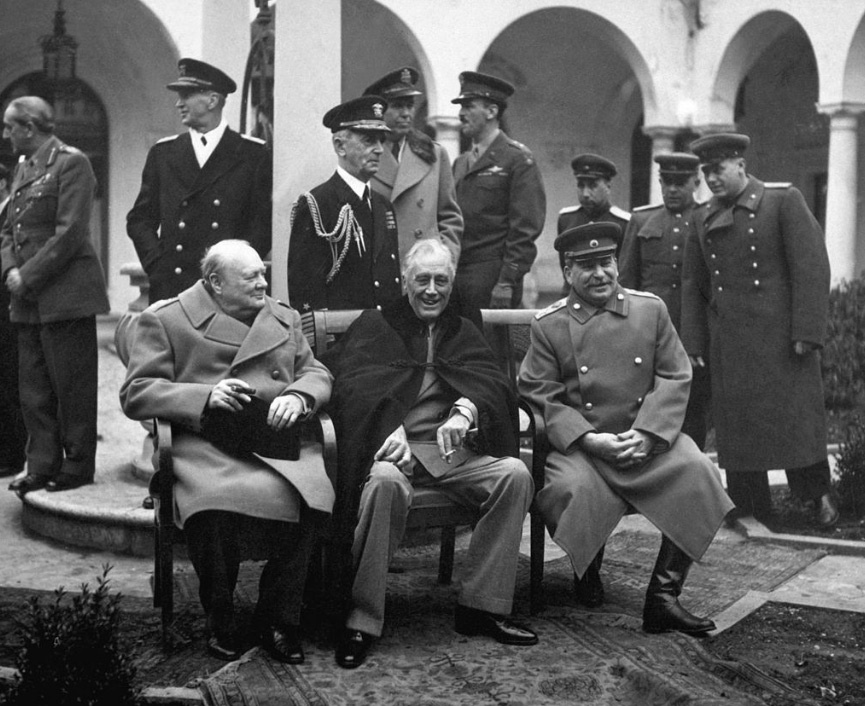
The Big Three at the Yalta Conference: Winston Churchill, Franklin D. Roosevelt and Joseph Stalin, 1945
The Soviet Union Soviet Union, officially the Union of Soviet Socialist Republics (USSR), was a transcontinental country that spanned much of Eurasia from 1922 to 1991. The Soviet Union fall process began with growing unrest in the Union's various constituent national republics developing into an incessant political and legislative conflict between them and the central government. Estonia was the first Soviet republic to declare state sovereignty inside the Union. sought to dominate the internal affairs of countries that bordered it. During the war, Stalin had created special training centers for communists from different countries so that they could set up secret police forces loyal to Moscow as soon as the Red Army took control. Soviet agents took control of the media, especially radio; they quickly harassed and then banned all independent civic institutions, from youth groups to schools, churches and rival political parties. Stalin also sought continued peace with Britain and the United States
Soviet Union, officially the Union of Soviet Socialist Republics (USSR), was a transcontinental country that spanned much of Eurasia from 1922 to 1991. The Soviet Union fall process began with growing unrest in the Union's various constituent national republics developing into an incessant political and legislative conflict between them and the central government. Estonia was the first Soviet republic to declare state sovereignty inside the Union. sought to dominate the internal affairs of countries that bordered it. During the war, Stalin had created special training centers for communists from different countries so that they could set up secret police forces loyal to Moscow as soon as the Red Army took control. Soviet agents took control of the media, especially radio; they quickly harassed and then banned all independent civic institutions, from youth groups to schools, churches and rival political parties. Stalin also sought continued peace with Britain and the United States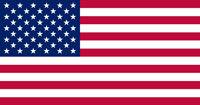 The United States of America (U.S.A. or USA), commonly known as the United States (U.S. or US) or America, is a country in North America. It is the world's third-largest country by both land and total area. The United States shares land borders with Canada to its north and with Mexico to its south. The national capital is Washington, D.C., and the most populous city and financial center is New York City., hoping to focus on internal reconstruction and economic growth.
The United States of America (U.S.A. or USA), commonly known as the United States (U.S. or US) or America, is a country in North America. It is the world's third-largest country by both land and total area. The United States shares land borders with Canada to its north and with Mexico to its south. The national capital is Washington, D.C., and the most populous city and financial center is New York City., hoping to focus on internal reconstruction and economic growth.
In the American view, Stalin seemed a potential ally in accomplishing their goals, whereas in the British approach Stalin appeared as the greatest threat to the fulfillment of their agenda. With the Soviets already occupying most of Central and Eastern Europe, Stalin was at an advantage and the two western leaders vied for his favors.
The differences between Roosevelt and Churchill led to several separate deals with the Soviets. In October 1944, Churchill traveled to Moscow and proposed the "percentages agreement" to divide the Balkans into respective spheres of influence, including giving Stalin predominance over Romania Romania is a country located at the crossroads of Central, Eastern and Southeast Europe. It borders Ukraine to the north and east, Hungary to the west, Serbia to the southwest, Bulgaria to the south, Moldova to the east, and the Black Sea to the southeast. Romania is a developing country with a high-income economy, classified as a middle power in international relations. and Bulgaria
Romania is a country located at the crossroads of Central, Eastern and Southeast Europe. It borders Ukraine to the north and east, Hungary to the west, Serbia to the southwest, Bulgaria to the south, Moldova to the east, and the Black Sea to the southeast. Romania is a developing country with a high-income economy, classified as a middle power in international relations. and Bulgaria Bulgaria, officially the Republic of Bulgaria, is a country in Southeast Europe. It is situated on the eastern portion of the Balkans directly south of the Danube river and west of the Black Sea. Sofia is the nation's capital and largest city; other major cities include Burgas, Plovdiv, and Varna. Bulgaria's foreign relations have been shaped by its geographical location and its modern membership in the European Union and NATO. and Churchill carte blanche over Greece. At the Yalta Conference of February 1945, Roosevelt signed a separate deal with Stalin in regard of Asia and refused to support Churchill on the issues of Poland
Bulgaria, officially the Republic of Bulgaria, is a country in Southeast Europe. It is situated on the eastern portion of the Balkans directly south of the Danube river and west of the Black Sea. Sofia is the nation's capital and largest city; other major cities include Burgas, Plovdiv, and Varna. Bulgaria's foreign relations have been shaped by its geographical location and its modern membership in the European Union and NATO. and Churchill carte blanche over Greece. At the Yalta Conference of February 1945, Roosevelt signed a separate deal with Stalin in regard of Asia and refused to support Churchill on the issues of Poland Poland, officially the Republic of Poland, and in historical context referred to as the Third Polish Republic, is a country in Central Europe. The Kingdom of Poland emerged in 1025 and in 1569 cemented its longstanding association with Lithuania, thus forming the Polish–Lithuanian Commonwealth. It was one of the largest great powers of Europe at the time, with a uniquely liberal political system that adopted Europe's first modern constitution in 1791. and the Reparations. Roosevelt ultimately approved the percentage agreement, but there was still apparently no firm consensus on the framework for a post-war settlement in Europe.
Poland, officially the Republic of Poland, and in historical context referred to as the Third Polish Republic, is a country in Central Europe. The Kingdom of Poland emerged in 1025 and in 1569 cemented its longstanding association with Lithuania, thus forming the Polish–Lithuanian Commonwealth. It was one of the largest great powers of Europe at the time, with a uniquely liberal political system that adopted Europe's first modern constitution in 1791. and the Reparations. Roosevelt ultimately approved the percentage agreement, but there was still apparently no firm consensus on the framework for a post-war settlement in Europe.
At the Second Quebec Conference, a high-level military conference held in Quebec City, 12–16 September 1944, Churchill and Roosevelt reached agreement on a number of matters, including a plan for Germany, based on Henry Morgenthau Jr.'s original proposal. The memorandum drafted by Churchill provided for "eliminating the warmaking industries in the Ruhr and the Saar... looking forward to converting Germany into a country primarily agricultural and pastoral in its character." However, it no longer included a plan to partition the country into several independent states. On 10 May 1945, President Truman signed the U.S. occupation directive JCS 1067. The directive, which was in effect for over two years, and was enthusiastically supported by Stalin, directed the U.S. forces of occupation to "...take no steps looking toward the economic rehabilitation of Germany".
Some historians have argued that the Cold War began when the US negotiated a separate peace with Nazi SS General Karl Wolff in northern Italy. The Soviet Union was not allowed to participate and the dispute led to heated correspondence between Franklin Roosevelt and Stalin. General Wolff, a war criminal, appears to have been guaranteed immunity at the Nuremberg trials by Office of Strategic Services (OSS) commander (and later CIA director) Allen Dulles when they met in March 1945 . Wolff and his forces were being considered to help implement Operation Unthinkable, a secret plan to invade the Soviet Union which Winston Churchill advocated during this period.
In April 1945, President Roosevelt died and was succeeded by Harry S. Truman, who distrusted Stalin and turned for advice to an elite group of foreign policy intellectuals. Both Churchill and Truman opposed, among other things, the Soviets' decision to prop up the Lublin government, the Soviet-controlled rival to the Polish government-in-exile in London, whose relations with the Soviets had been severed.
Following the Allies' May 1945 victory, the Soviets effectively occupied Central and Eastern Europe, while strong US and Western allied forces remained in Western Europe. In Germany and Austria, France France, officially the French Republic is transcontinental country predominantly located in Western Europe and spanning overseas regions and territories in the Americas and the Atlantic, Pacific and Indian Oceans. France reached its political and military zenith in the early 19th century under Napoleon Bonaparte, subjugating much of continental Europe and establishing the First French Empire. , Britain, the Soviet Union and the United States established zones of occupation and a loose framework for parceled four-power control.
France, officially the French Republic is transcontinental country predominantly located in Western Europe and spanning overseas regions and territories in the Americas and the Atlantic, Pacific and Indian Oceans. France reached its political and military zenith in the early 19th century under Napoleon Bonaparte, subjugating much of continental Europe and establishing the First French Empire. , Britain, the Soviet Union and the United States established zones of occupation and a loose framework for parceled four-power control.
The 1945 Allied conference in San Francisco established the multi-national United Nations (UN)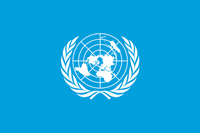 United Nations (UN) is an intergovernmental organization whose stated purposes are to maintain international peace and security, develop friendly relations among nations, achieve international cooperation, and be a centre for harmonizing the actions of nations. The UN was established after World War II with the aim of preventing future world wars, succeeding the League of Nations, which was characterized as ineffective. for the maintenance of world peace, but the enforcement capacity of its Security Council was effectively paralyzed by individual members' ability to use veto power. Accordingly, the UN was essentially converted into an inactive forum for exchanging polemical rhetoric, and the Soviets regarded it almost exclusively as a propaganda tribune.
United Nations (UN) is an intergovernmental organization whose stated purposes are to maintain international peace and security, develop friendly relations among nations, achieve international cooperation, and be a centre for harmonizing the actions of nations. The UN was established after World War II with the aim of preventing future world wars, succeeding the League of Nations, which was characterized as ineffective. for the maintenance of world peace, but the enforcement capacity of its Security Council was effectively paralyzed by individual members' ability to use veto power. Accordingly, the UN was essentially converted into an inactive forum for exchanging polemical rhetoric, and the Soviets regarded it almost exclusively as a propaganda tribune.
Potsdam Conference and Surrender of Japan
At the Potsdam Conference, which started in late July after Germany's surrender, serious differences emerged over the future development of Germany and the rest of Central and Eastern Europe. Moreover, the participants' mounting antipathy and bellicose language served to confirm their suspicions about each other's hostile intentions and entrench their positions. At this conference Truman informed Stalin that the United States possessed a powerful new weapon.
Stalin was aware that the Americans were working on the atomic bomb and, given that the Soviets' own rival program was in place, he reacted to the news calmly. The Soviet leader said he was pleased by the news and expressed the hope that the weapon would be used against Japan The Empire of Japan, also known as the Japanese Empire or Imperial Japan, was a historical nation-state and great power that existed from the Meiji Restoration in 1868 until the enactment of the post-World War II 1947 constitution and subsequent formation of modern Japan. Economic and political turmoil in the 1920s led to the rise of militarism, nationalism and totalitarianism eventually culminating in Japan's membership in the Axis alliance. . One week after the end of the Potsdam Conference, the US bombed Hiroshima and Nagasaki. Shortly after the attacks, Stalin protested to US officials when Truman offered the Soviets little real influence in occupied Japan.
The Empire of Japan, also known as the Japanese Empire or Imperial Japan, was a historical nation-state and great power that existed from the Meiji Restoration in 1868 until the enactment of the post-World War II 1947 constitution and subsequent formation of modern Japan. Economic and political turmoil in the 1920s led to the rise of militarism, nationalism and totalitarianism eventually culminating in Japan's membership in the Axis alliance. . One week after the end of the Potsdam Conference, the US bombed Hiroshima and Nagasaki. Shortly after the attacks, Stalin protested to US officials when Truman offered the Soviets little real influence in occupied Japan.
Beginnings of the Eastern Bloc
During the opening stages of World War II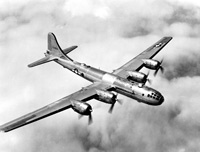 World War II or the Second World War, often abbreviated as WWII or WW2, was a world war that lasted from 1939 to 1945. It involved the vast majority of the world's countries—including all of the great powers—forming two opposing military alliances: the Allies and the Axis powers. World War II was a total war that directly involved more than 100 million personnel from more than 30 countries. World War II is generally considered to have begun on 1 September 1939, when Nazi Germany, under Adolf Hitler, invaded Poland. View World War II », the Soviet Union laid the foundation for the Eastern Bloc by invading and then annexing several countries as Soviet Socialist Republics, by agreement with Nazi Germany
World War II or the Second World War, often abbreviated as WWII or WW2, was a world war that lasted from 1939 to 1945. It involved the vast majority of the world's countries—including all of the great powers—forming two opposing military alliances: the Allies and the Axis powers. World War II was a total war that directly involved more than 100 million personnel from more than 30 countries. World War II is generally considered to have begun on 1 September 1939, when Nazi Germany, under Adolf Hitler, invaded Poland. View World War II », the Soviet Union laid the foundation for the Eastern Bloc by invading and then annexing several countries as Soviet Socialist Republics, by agreement with Nazi Germany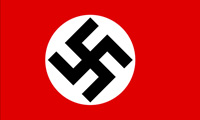 Nazi Germany (officially known as the German Reich from 1933 until 1943, and the Greater German Reich from 1943 to 1945) was the German state between 1933 and 1945, when Adolf Hitler and the Nazi Party controlled the country, transforming it into a dictatorship. Under Hitler's rule, Germany quickly became a totalitarian state where nearly all aspects of life were controlled by the government. in the Molotov–Ribbentrop Pact. These included eastern Poland (incorporated into two different SSRs), Latvia (which became the Latvian SSR), Estonia (which became the Estonian SSR), Lithuania (which became the Lithuanian SSR), part of eastern Finland (which became the Karelo-Finnish SSR) and eastern Romania (which became the Moldavian SSR).
Nazi Germany (officially known as the German Reich from 1933 until 1943, and the Greater German Reich from 1943 to 1945) was the German state between 1933 and 1945, when Adolf Hitler and the Nazi Party controlled the country, transforming it into a dictatorship. Under Hitler's rule, Germany quickly became a totalitarian state where nearly all aspects of life were controlled by the government. in the Molotov–Ribbentrop Pact. These included eastern Poland (incorporated into two different SSRs), Latvia (which became the Latvian SSR), Estonia (which became the Estonian SSR), Lithuania (which became the Lithuanian SSR), part of eastern Finland (which became the Karelo-Finnish SSR) and eastern Romania (which became the Moldavian SSR).
The Central and Eastern European territories liberated from the Nazis and occupied by the Soviet armed forces were added to the Eastern Bloc by converting them into satellite states.
The Soviet-style regimes that arose in the Bloc not only reproduced Soviet command economies, but also adopted the brutal methods employed by Joseph Stalin and the Soviet secret police in order to suppress both real and potential opposition. In Asia, the Red Army had overrun Manchuria in the last month of the war, and it went on to occupy the large swathe of Korean territory located north of the 38th parallel.
As part of consolidating Stalin's control over the Eastern Bloc, the People's Commissariat for Internal Affairs (NKVD), led by Lavrentiy Beriya, supervised the establishment of Soviet-style secret police systems in the Bloc that were supposed to crush anti-communist resistance. When the slightest stirrings of independence emerged in the Bloc, Stalin's strategy matched that of dealing with domestic pre-war rivals: they were removed from power, put on trial, imprisoned, and in several instances, executed.
British Prime Minister Winston Churchill was concerned that, given the enormous size of Soviet forces deployed in Europe at the end of the war, and the perception that Soviet leader Joseph Stalin was unreliable, there existed a Soviet threat to Western Europe. After World War II, US officials guided Western European leaders in establishing their own secret security force to prevent subversion in the Western bloc, which evolved into Operation Gladio.
Preparing for a "new war"
In February 1946, George F. Kennan's "Long Telegram" from Moscow helped to articulate the US government's increasingly hard line against the Soviets, and became the basis for US strategy toward the Soviet Union for the duration of the Cold War. That September, the Soviet side produced the Novikov telegram, sent by the Soviet ambassador to the US but commissioned and "co-authored" by Vyacheslav Molotov; it portrayed the US as being in the grip of monopoly capitalists who were building up military capability "to prepare the conditions for winning world supremacy in a new war".
On 6 September 1946, James F. Byrnes delivered a speech in Germany repudiating the Morgenthau Plan (a proposal to partition and de-industrialize post-war Germany) and warning the Soviets that the US intended to maintain a military presence in Europe indefinitely. As Byrnes admitted a month later, "The nub of our program was to win the German people ... it was a battle between us and Russia over minds ..."
A few weeks after the release of this "Long Telegram", former British Prime Minister Winston Churchill delivered his famous "Iron Curtain" speech in Fulton, Missouri. The speech called for an Anglo-American alliance against the Soviets, whom he accused of establishing an "iron curtain" from "Stettin in the Baltic to Trieste in the Adriatic". Only a week later, on 13 March Stalin responded vigorously to the speech, saying that Churchill could be compared to Hitler insofar as he advocated the racial superiority of English-speaking nations so that they could satisfy their hunger for world domination, and that such a declaration was "a call for war on the U.S.S.R." The Soviet leader also dismissed the accusation that the USSR was exerting increasing control over the countries lying in its sphere. He argued that there was nothing surprising in "the fact that the Soviet Union, anxious for its future safety, [was] trying to see to it that governments loyal in their attitude to the Soviet Union should exist in these countries".
HISTORY
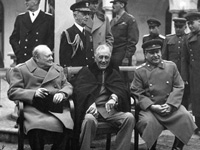
RESOURCES
This article uses material from the Wikipedia article "Cold War (1947–1991)", which is released under the Creative Commons Attribution-Share-Alike License 3.0.
© Stories Preschool. All Rights Reserved.
